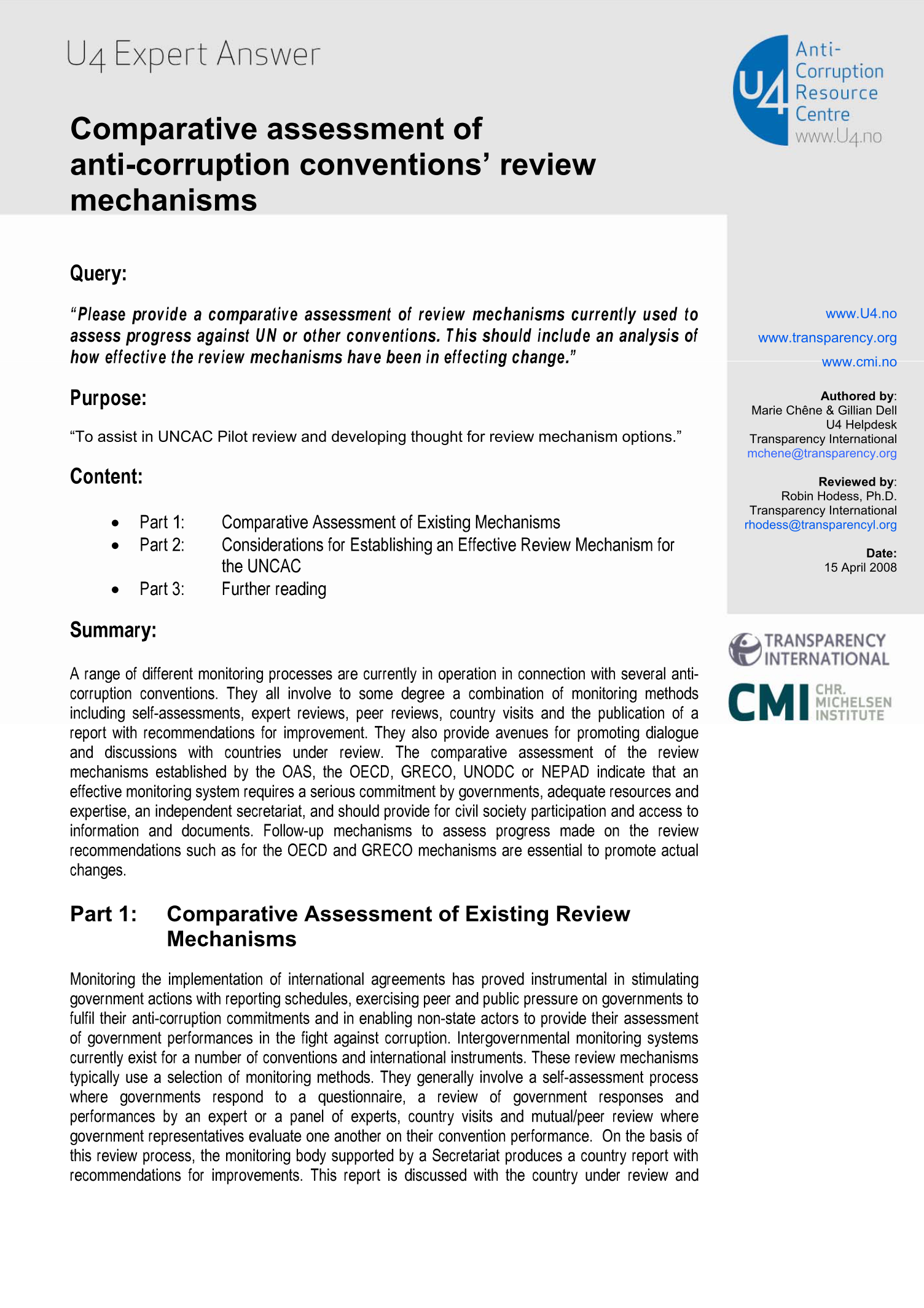U4 Helpdesk Answer
Comparative assessment of anti-corruption conventions' review mechanisms
A range of different monitoring processes are currently in operation in connection with several anti-corruption conventions. They all involve to some degree a combination of monitoring methods including self-assessments, expert reviews, peer reviews, country visits and the publication of a report with recommendations for improvement. They also provide avenues for promoting dialogue and discussions with countries under review. The comparative assessment of the review mechanisms established by the OAS, the OECD, GRECO, UNODC or NEPAD indicate that an effective monitoring system requires a serious commitment by governments, adequate resources and expertise, an independent secretariat, and should provide for civil society participation and access to information and documents. Follow-up mechanisms to assess progress made on the review recommendations such as for the OECD and GRECO mechanisms are essential to promote actual changes.

Cite this publication
Chêne, M.; Dell, G. (2008) Comparative assessment of anti-corruption conventions' review mechanisms. Bergen: U4 Anti-Corruption Resource Centre, Chr. Michelsen Institute (U4 Helpdesk Answer Helpdesk)
Disclaimer
All views in this text are the author(s)’, and may differ from the U4 partner agencies’ policies.
This work is licenced under a Creative Commons Attribution-NonCommercial-NoDerivatives 4.0 International licence (CC BY-NC-ND 4.0)